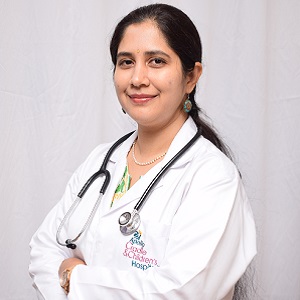Infections are caused by harmful microorganisms that enter our bodies and cause diseases. The human body has its defence mechanisms, but sometimes the immune system is not enough to ward off bacteria, viruses, and other microorganisms. It is essential to know the symptoms, causes, and ways to prevent infections.
Types of Infections
Infections can be classified into different categories depending on the type of pathogen responsible for causing them.
Bacterial Infections: These infections are caused by bacteria that invade the body and multiply to cause illness. Some common bacterial infections are tuberculosis, strep throat, and urinary tract infections.
Viral Infections: These infections are caused by viruses that enter the body and invade healthy cells, where they multiply and cause illness. Some common viral infections are the flu, measles, and HIV.
Fungal Infections: These infections are caused by fungi that grow on the skin, nails, and hair. Some common fungal infections are athlete's foot, ringworm, and candidiasis.
Parasitic Infections: These infections are caused by parasites that invade the body and live off the host. Some common parasitic infections are malaria, tapeworm, and lice.
Causes of Infections
Infections can be caused by several factors, including:
Poor Hygiene: Poor hygiene practices can lead to the spread of infections. Not washing hands regularly, not covering the mouth and nose when coughing or sneezing, and not properly handling and cooking food can all lead to infections.
Weakened Immune System: A weakened immune system due to an illness or medication can increase the risk of infection.
Sexual Contact: Sexual contact can transmit sexually transmitted infections such as gonorrhoea, chlamydia, and syphilis.
Travel: Traveling to areas with high infection rates can increase the risk of getting infections such as malaria, dengue fever, and the Zika virus.
Symptoms
The symptoms of an infection vary depending on the type of infection. Some common symptoms are:
Fever: Fever is a common symptom of an infection. It is the body's response to fight against the harmful microorganisms.
Fatigue: Feeling tired or weak is a sign that the body is trying to fight against an infection.
Pain: Pain in the affected area is a common symptom of infection. It can be accompanied by redness and swelling.
Coughing and sneezing: These are signs of respiratory infections such as flu and the common cold.
Diarrhea and vomiting: These are symptoms of gastrointestinal infections.
Rashes and itchy skin: Skin infections such as ringworm and scabies can cause rashes and itchy skin.
Diagnosis of Infections
The diagnosis of infections involves a combination of laboratory tests and physical examination. The healthcare provider may order blood tests, urine tests, or imaging tests to determine the type and severity of the infection. A physical examination may include checking vital signs, inspecting the affected area, and assessing the overall health status of the patient.
Treatment of Infections
The treatment of infections depends on the type of infection and its severity. In some cases, the body's immune system can fight off the infection on its own. In other cases, medications such as antibiotics, antifungals, or antivirals may be prescribed to treat the infection. In severe cases, hospitalisation may be required.
Bacterial Infections: Bacterial infections are typically treated with antibiotics. The type of antibiotic prescribed will depend on the type of bacteria causing the infection.
Viral Infections: Viral infections cannot be treated with antibiotics. Antiviral medications may be prescribed to treat some viral infections, such as influenza.
Fungal Infections: Fungal infections are typically treated with antifungal medications.
Parasitic Infections: Parasitic infections are typically treated with antiparasitic medications.
It is crucial to complete the full course of treatment to ensure that the infection is eliminated.
Prevention
The best way to prevent infections is to practise good hygiene. Some ways to prevent infections are:
- Wash your hands regularly with soap and water for at least 20 seconds.
- Cover your mouth and nose when coughing or sneezing.
- Avoid touching your face, especially your eyes, nose, and mouth.
- Get vaccinated against infectious diseases such as the flu, pneumonia, and COVID-19.
- Avoid close contact with people who are sick.
- Stay home when you are sick to prevent the spread of infection.
If you're experiencing any symptoms or concerns related to infections, it is recommended that you consult a medical professional.
Request an appointment at Apollo Cradle, Bengaluru - Jayanagar. Call 1860-500-4424 to book an appointment.
Infections are most commonly spread through close contact with infected individuals, contaminated water, food, or objects, or through airborne transmission.
Yes, practising good hygiene, including regular hand washing, can help prevent the spread of infections.
The length of time it takes to recover from an infection depends on the type of infection, its severity, and the individual's overall health. Mild infections may resolve within a few days, while severe infections may require hospitalization and take weeks or months to recover from.
Yes, infections can be fatal if not treated promptly, particularly in individuals with weakened immune systems.
If you have symptoms of an infection, such as a fever, cough, or body aches, it's important to see a doctor. If you have a severe infection or are experiencing difficulty breathing, chest pain, or confusion, seek medical attention immediately.

 93% Patient Satisfaction Score
93% Patient Satisfaction Score









